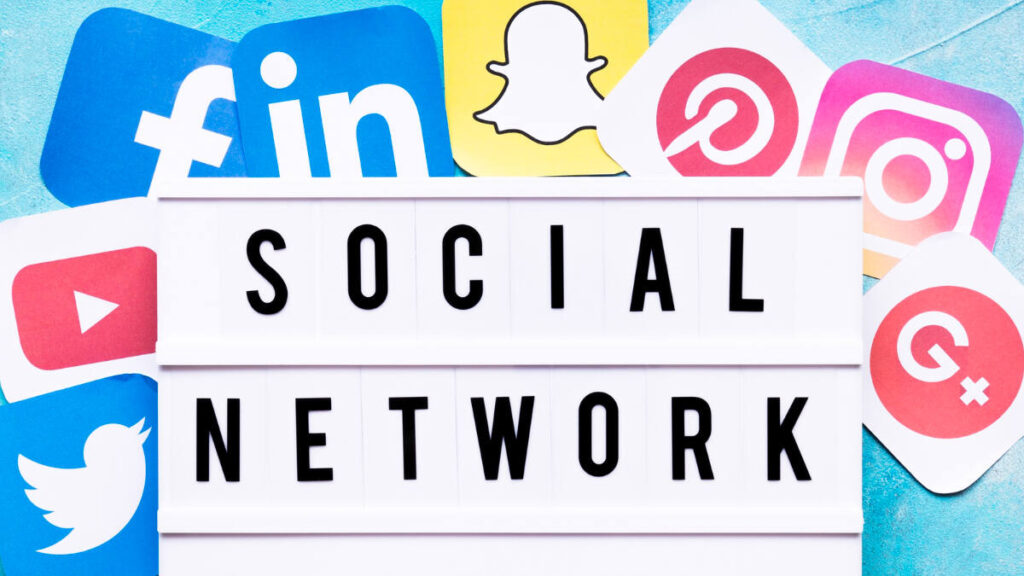Introduction to the Ongoing Facebook Ads Investigation
What Triggered the 2025 Scrutiny?
If you’ve ever run or clicked on Facebook Ads, you’re part of a massive ecosystem that’s now being questioned. It all started with a whistleblower—a former Meta engineer—who revealed internal documents showing how Facebook allegedly allowed political entities to bypass ad filters and target users with inflammatory and divisive content. These revelations sent shockwaves through both the tech world and public opinion.
- Introduction to the Ongoing Facebook Ads Investigation
- The Evolution of Facebook Ads Over the Years
- The Role of Privacy and Data Misuse
- Regulatory Bodies Step In
- Behind the Scenes – How Facebook Ads Work
- Allegations of Election Interference Through Facebook Ads
- Impact on Businesses and Marketers
- Meta's Official Response and Public Statements
- The Future of Facebook Ads in a Post-Investigation World
- Conclusion: A Turning Point in Digital Advertising
You see, while Facebook Ads were already criticized for their opaque targeting systems, this leak showed something more serious: deliberate leniency. Allegedly, some high-paying clients were granted “backdoor” access to user data and allowed to push ads that skirted around the platform’s ad policies. The whistleblower called it “digital favoritism,” and the world took notice.
This wasn’t just about privacy—it was about trust. Millions of users started questioning whether their data had been used ethically or if it had been sold to the highest bidder. As pressure mounted, regulators in the U.S., Europe, and several Asian countries launched formal investigations into Facebook’s advertising practices. And thus, the storm began.
The Growing Concern Over Digital Ad Practices
It’s not just Facebook Ads under the lens. The entire digital advertising industry is going through a moral audit. However, because Facebook has the biggest global footprint and the most advanced targeting technology, it’s being singled out.
Imagine logging into Facebook to check on a friend’s baby photos and suddenly seeing ads that eerily mirror a private conversation you had just hours ago. Creepy, right? That’s been a growing complaint among users. And while Facebook claims it’s just “good targeting,” many believe it’s a breach of privacy.
Digital watchdogs are calling it “surveillance marketing.” The idea is that platforms like Facebook gather so much behavioral data that they can manipulate users’ emotions and buying decisions. Whether it’s true or not, the fact that it feels intrusive has created a tidal wave of backlash. In 2025, that backlash finally led to formal legal consequences.
The Evolution of Facebook Ads Over the Years
From Basic Banners to AI-Powered Targeting
Let’s rewind to 2007. That’s when Facebook Ads first made their debut. At the time, they were simple sidebar ads that looked like miniature billboards. But fast forward to today, and we’re talking about hyper-intelligent, AI-driven ad units that know your interests better than your best friend.
Here’s the thing: this evolution wasn’t just about better tech—it was about control. Facebook collected data on likes, shares, interactions, browsing habits, and even time spent looking at a post. All of this was used to create what marketers call a “digital fingerprint.” That fingerprint then determined which ads you saw, when you saw them, and how often.
On the surface, this is a win-win: advertisers get better ROI, and users see more relevant content. But beneath the surface lies the question—how much is too much?
What’s even more alarming is the use of predictive analytics. Facebook’s AI doesn’t just know what you like—it predicts what you will like or even what you might buy tomorrow. Creepy? For some, absolutely. And regulators think so, too, which is why this AI-driven targeting is a key focus of the investigation.
How Facebook Ads Became a Dominant Marketing Tool
For small business owners, Facebook Ads were a godsend. With just $5, anyone could reach hundreds—if not thousands—of potential customers. It leveled the playing field in a way traditional media never could. And during the pandemic years, it became the lifeline for businesses trying to survive lockdowns and restrictions.
Take Rachel, a home-based candle maker in Ohio. In 2021, she spent $100 on Facebook Ads and ended up with 600 new customers in just two weeks. “It felt like magic,” she recalls. And stories like hers are everywhere.
But as the platform grew, so did the complexities. New rules, algorithm changes, ad approvals, and audience limitations made it harder to navigate. And with more rules came more loopholes—loopholes some marketers exploited and which are now central to the current investigation.
The dominance of Facebook Ads is a double-edged sword. Yes, it democratized marketing, but it also centralized control in one company’s hands. And when that company is accused of playing favorites or manipulating reach, the trust equation gets shaky.
The Role of Privacy and Data Misuse
Real-Life Cases That Sparked Outrage
Remember when you spoke to a friend about hiking boots and suddenly got bombarded with outdoor gear ads? That might seem funny at first, but for many users, it’s downright terrifying. This kind of micro-targeting raised serious concerns about whether Facebook Ads are eavesdropping or using data unethically.
One of the major incidents involved a women’s shelter that claimed Facebook’s algorithm exposed its ad campaigns to the abusers they were trying to avoid. Another case saw political ads disguised as news articles targeting vulnerable populations. These stories hit a nerve and triggered a public outcry.
Even more alarming were reports of children being targeted with age-inappropriate ads. Parents began questioning how Facebook determined these ad placements. The platform claimed it followed strict COPPA compliance, but leaked internal memos showed otherwise.
The line between personalization and exploitation is blurry, and Facebook Ads are walking that tightrope with increasing scrutiny in 2025.
The Cambridge Analytica Legacy Still Haunts
The Cambridge Analytica scandal would have been the wake-up call to clean things up. However, according to investigators, some of those shady practices may have just been rebranded and continued under different names.
For those who forgot, Cambridge Analytica was caught using Facebook data to profile and influence voters psychologically. The scandal led to congressional hearings and a hefty fine, but many experts argue it didn’t change the core ad systems at all.
Now, in 2025, whistleblowers claim that similar tactics are being used with AI and deep learning models to influence public opinion through Facebook Ads. The difference? It’s now harder to detect because the tech has become more subtle and sophisticated.
This is why regulators are digging so deep this time around. They want to understand if Facebook truly learned from its past or got better at hiding its tracks.
Regulatory Bodies Step In
Who Is Investigating Facebook Ads in 2025?
Several powerful organizations have launched full-scale probes. In the U.S., the Federal Trade Commission (FTC) and the Department of Justice (DOJ) are leading the charge. In Europe, the General Data Protection Regulation (GDPR) watchdogs are collaborating with tech regulators in Ireland, Germany, and France.
Even countries like India, Australia, and Brazil have opened independent investigations into Facebook Ads, especially focusing on how local elections were allegedly influenced using targeted content. This has turned into a global affair with massive implications.
Each of these bodies has subpoenaed internal documents, algorithms, and user data handling procedures. The goal? To determine whether Facebook Ads broke privacy laws, discriminated against users, or misrepresented data handling policies.
What Are the Main Legal Allegations?
Here are some of the central allegations under investigation:
- Unlawful data harvesting: Collecting user data without proper consent.
- Algorithmic discrimination: Ads targeting users based on race, gender, or political affiliation in ways that violate civil rights.
- Lack of transparency: Not clearly disclosing how ads are targeted or why users see them.
- Political manipulation: Allowing state-sponsored or ideological campaigns to influence public sentiment covertly.
Each of these claims is serious. If proven true, Facebook could face record-breaking fines or even restrictions on how it can operate Facebook Ads in various countries.
Behind the Scenes – How Facebook Ads Work
A Peek into the Ad Targeting Algorithm
Understanding how Facebook Ads work is like pulling back the curtain on a massive, complex machine. It’s not just about selecting an age range or geographic location. The real magic—or madness, depending on your view—happens behind the scenes, where algorithms crunch millions of data points to decide exactly what ad you’ll see next.
Here’s a simplified breakdown: When you engage with content—liking posts, sharing memes, commenting on a friend’s status—Facebook’s algorithm takes note. It uses these actions, along with your browsing behavior outside of the platform, to create a detailed profile of your preferences, habits, and even emotional triggers.
And it gets even deeper. The algorithm also analyzes the time you spend viewing content, the order of your scrolling, and your device type. All this data helps predict what will make you click, share, or buy. Essentially, Facebook isn’t just reacting to your interests—it’s trying to stay one step ahead.
This predictive power is part of why Facebook Ads became so popular among marketers. But it’s also why regulators are worried. When a machine knows more about your behavior than you do, the potential for misuse skyrockets.
What Makes Facebook Ads So Effective?
There’s a reason billions are poured into Facebook Ads every year—they work. Unlike traditional advertising, where businesses hope their message reaches the right people, Facebook offers laser-focused precision. You can run an ad for left-handed guitar picks to 18–24-year-olds who listen to indie rock and live in Denver. That’s the kind of specificity no billboard or TV ad could ever offer.
But what truly sets Facebook Ads apart is its dynamic optimization. Once you set your campaign objectives—whether it’s clicks, conversions, or leads—Facebook’s AI automatically tweaks your ad delivery in real time to boost performance. This means your ad budget is being constantly reallocated to audiences and placements that offer the best return.
That efficiency has drawn marketers in droves. And when paired with rich visuals, engaging copy, and strong calls to action, the results are often impressive. Businesses large and small have seen incredible growth thanks to Facebook Ads.
However, this effectiveness is also why the platform is under fire. If ads can be tailored so perfectly to our psychology, what’s stopping malicious actors from using the same tools to misinform, manipulate, or deceive? That’s the ethical dilemma regulators are trying to solve now.
Allegations of Election Interference Through Facebook Ads
Political Campaigns and Micro-Targeting
One of the most explosive allegations in the 2025 investigations is that Facebook Ads have been used to interfere with political processes globally. We’re not just talking about bots or fake accounts—we’re talking about targeted ad campaigns designed to sway voters based on emotional triggers and psychological profiling.
Micro-targeting in politics isn’t new, but Facebook took it to an entirely new level. Political parties have been accused of running dark ads—untraceable ad content shown only to selected groups—that play on fears, prejudices, or misinformation. These ads often don’t go through traditional fact-checking and disappear after the campaign ends, leaving no public record.
In countries like the U.K., India, and the U.S., watchdog groups have reported that Facebook Ads were used to polarize voters by showing contradictory messages to different demographics. For example, a candidate might promote strict immigration policies to one group while showing pro-immigrant messaging to another. All without anyone realizing the double-talk.
This kind of manipulation isn’t illegal per se, but it raises serious ethical questions. And now, several governments are demanding answers on whether Facebook knowingly facilitated this kind of influence campaign or, worse, profited from it.
International Backlash and Public Reaction
The reaction from the global community has been fierce. Citizens across continents are questioning how free and fair their elections really were. Protests have erupted, and hashtags like #AdFreePolitics and #MetaManipulation have gone viral.
Some countries, like Germany and South Korea, have already passed laws requiring full transparency for political Facebook Ads, including real-time public databases of who paid for what, when, and why. The EU is pushing for even stricter regulation, with talks of banning micro-targeting altogether in political contexts.
What’s most shocking is the revelation that foreign entities may have orchestrated some of these campaigns. Facebook claims to have protocols in place to detect and block such interference but leaked emails suggest these safeguards were often bypassed, especially when high ad revenue was on the line.
This level of global concern has only fueled the investigations further, turning what started as a privacy probe into a full-blown international incident.
Impact on Businesses and Marketers
Small Businesses Feel the Heat
While all this legal drama unfolds, small business owners—the backbone of the Facebook Ads ecosystem—are feeling the heat. Many are stuck in limbo, unsure whether the rules will change overnight or if their entire ad strategy could become obsolete.
Take the example of Leo, a digital marketer who manages ad campaigns for ten local businesses. With Facebook under investigation, he’s noticed increased ad rejections, stricter content reviews, and delays in campaign approvals. “It’s like walking on eggshells,” he says. “Your ad is flagged from one wrong word.”
For many entrepreneurs, Facebook Ads were a lifeline. And now, with so much uncertainty, some are moving budgets to other platforms like TikTok Ads and Google Ads or even going back to email marketing and SEO strategies. The fear is real: What if Facebook loses its ad platform privileges or is forced to limit targeting options drastically?
Ad Spend Shifts and Market Trends
Ad spend is starting to shift as well. According to recent reports, Q1 of 2025 saw a 12% drop in Facebook Ads revenue compared to the same quarter in 2024. That’s a big hit, considering Meta’s ad business is its primary revenue source.
Advertisers are looking for platforms that offer similar reach without the legal baggage. Pinterest, LinkedIn, YouTube, and even Snapchat are seeing renewed interest. Some agencies are hedging their bets, diversifying ad budgets to prepare for whatever comes next.
The bottom line? While Facebook Ads still dominate the market, their iron grip is loosening, and the world is watching to see what happens next.
Meta’s Official Response and Public Statements
Denial, Damage Control, and Rebranding Efforts
In response to the growing backlash, Meta has gone into full crisis management mode. Official statements insist that the company follows all regulations and that Facebook Ads are compliant with privacy laws. Mark Zuckerberg even appeared before Congress again in early 2025, asserting that Meta is “fully cooperating with all investigations” and “committed to user safety.”
But actions speak louder than words. The company has started testing new ad tools that emphasize ethical targeting and claim to reduce algorithmic bias. They’ve also launched a campaign aimed at educating users about how ads work, hoping to rebuild trust through transparency.
And, of course, there’s the rebranding. You might have noticed more use of terms like “Meta Advertising” instead of Facebook Ads. It’s a classic PR move—distancing the brand from controversy by changing the label.
Still, many critics see this as too little, too late. Advocacy groups are calling for stricter penalties, and some are even demanding a temporary halt to all targeted advertising until the investigations conclude.
Whether Meta can weather this storm remains to be seen. What’s clear is that the era of unchecked digital advertising is over, and Facebook Ads are ground zero for the industry’s reckoning.
The Future of Facebook Ads in a Post-Investigation World
What Could Change for Marketers and Users?
So, what does the road ahead look like for Facebook Ads? If regulators succeed in enforcing stricter rules, we could see massive shifts in how advertisers operate. Here are a few possibilities:
- Limited targeting capabilities: Marketers might no longer be able to micro-target based on personal data like religion, politics, or health.
- Higher ad costs: With more compliance requirements and fewer targeting options, the cost-per-click (CPC) could rise.
- More transparency tools: Users may get dashboards to see all the data used to target them, with easier ways to opt out.
- Real-time ad audits: Third-party oversight could become standard, where every ad goes through an external review before going live.
For users, this could mean fewer creepy ads but more generic ones.
Ad Industry’s Shift to Ethical Advertising
As Facebook Ads are being re-evaluated, a broader trend is emerging—ethical advertising. This means respecting consent, being transparent, and putting people over profit. Platforms that embrace these values are likely to win the trust war.
Advertisers, too, are pivoting. Instead of tricking algorithms, they’re focusing more on authentic storytelling, inclusive messaging, and community-driven campaigns. The goal? Connection over conversion.
This may signal a renaissance in advertising—one where the industry reclaims its humanity. And if that’s the silver lining of this whole investigation, it might just be worth it.
Conclusion: A Turning Point in Digital Advertising
The investigation into Facebook Ads in 2025 is more than just a legal dispute—it’s a cultural moment. It marks a turning point in how we think about data, privacy, influence, and responsibility in the digital age.
Once hailed as the most powerful tool in a marketer’s arsenal, Facebook Ads are now under scrutiny like never before. And while Meta fights to protect its empire, the rest of the world is waking up to the reality that advertising is no longer just about selling—it’s about power.
The findings of these studies may rewrite the guidelines for online interaction. Whether you’re a business owner, a marketer, or just someone who likes cat videos, this affects you. Because in a world where your every click becomes currency, knowing how that currency is used isn’t just smart—it’s essential.


